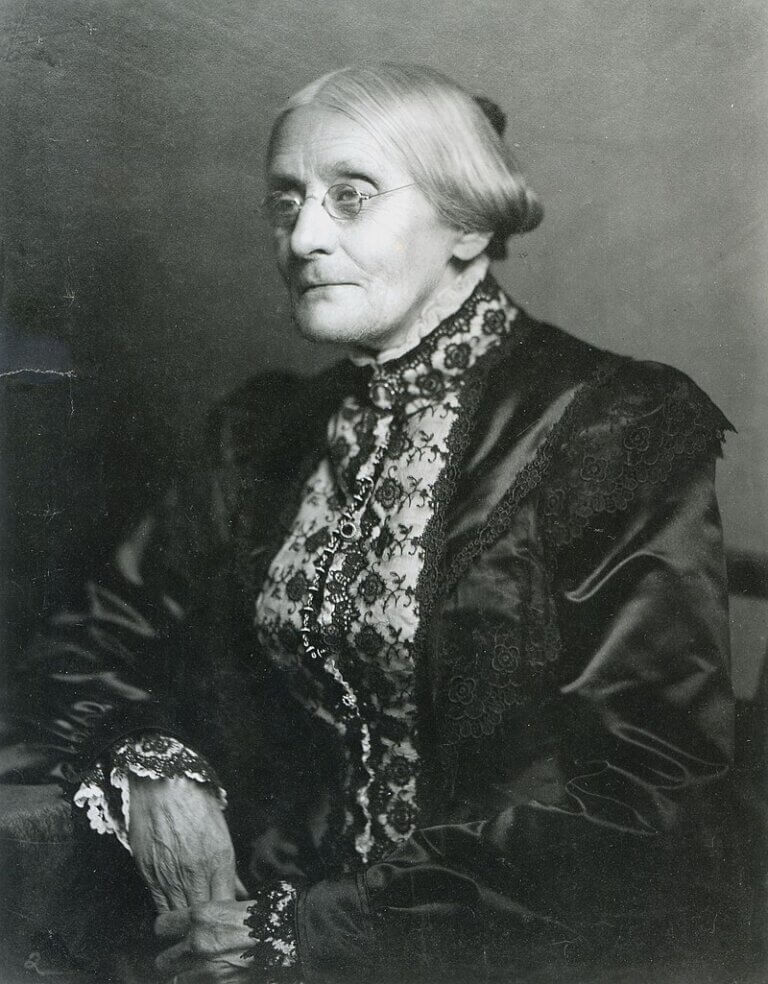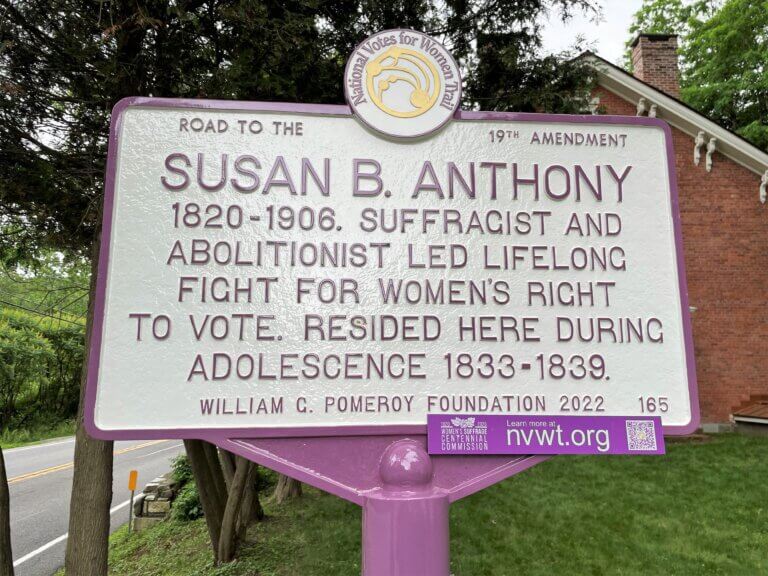SUSAN B. ANTHONY
- Program
- Subject
- Location
- Lat/Long
- Grant Recipient
-
National Votes for Women Trail
-
People
- 2835 NY-29, Greenwich, NY 12834, USA
- 43.110467, -73.422701
-
National Collaborative for Women's History Sites
SUSAN B. ANTHONY
Inscription
SUSAN B. ANTHONY1820 - 1906. SUFFRAGIST AND
ABOLITIONIST LED LIFELONG
FIGHT FOR WOMEN’S RIGHT
TO VOTE. RESIDED HERE DURING
ADOLESCENCE 1833 - 1839.
WILLIAM G. POMEROY FOUNDATION 2022
One of the most noted and remembered voices of the suffrage movement, Susan B. Anthony spent her life advocating for social, political, and economic reform. Born in Massachusetts in 1820 to a Quaker family, from 1826 to 1839 Susan B. Anthony lived in the hamlet of Battenville after her family relocated following a business offer in Washington County, New York. Anthony received much of her early education during this period, including a home school established by her father and the Deborah Moulsan Female Seminary in 1837, though the latter was short-lived due to the financial panic that year. Soon, her family was forced to sell the house commemorated by this marker
Shortly after, Susan B. Anthony began working as a teacher. She would work as a teacher until the family moved once more, this time near Rochester, New York. Here, Susan B. Anthony helped run the family farm while also beginning her activism in earnest. First joining the Daughters of Temperance, Anthony was soon drawn to the national debates regarding both women’s rights and slavery. In 1851, while attending an antislavery convention Susan B. Anthony was introduced to Elizabeth Cady Stanton, who had helped organize the first national woman’s rights convention in Seneca Falls three years prior. The meeting proved pivotal in taking the women’s suffrage movement national due to Anthony’s strength as an organizer and the groundwork laid by Stanton. Both would travel the country delivering speeches in favor of women’s suffrage. The two woman helped found and lead the National Woman Suffrage Association in 1869 following the 14th and 15th amendment, which gave voting rights to African American men, but did not extend the same right to women. They worked closely together until Stanton’s death in 1902.
Throughout Susan B. Anthony’s memorable career, perhaps no act is more emblazoned in the national historical memory than her 1872 attempt to vote in the presidential election that year. Joined by her sisters and other activists in Rochester, Susan B. Anthony cast her, then, illegal ballot in favor of Ulysses Grant. Two weeks later she was arrested and subsequently fined one hundred dollars, to which she reportedly told the judge, “I shall never pay a dollar of your unjust penalty.” Historians note she never did, either.
The role Anthony played in the fight for women’s suffrage cannot be understated; sadly, she would pass away in 1906, fourteen years before the ratification of the 19th amendment. Nevertheless, her legacy as a leader of the women’s suffrage movement and activist remains celebrated.


